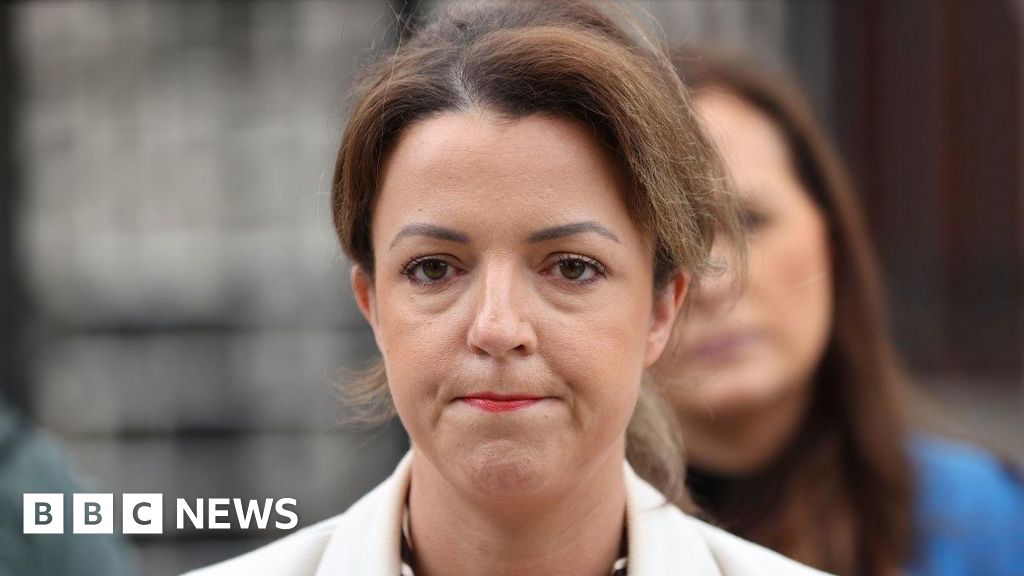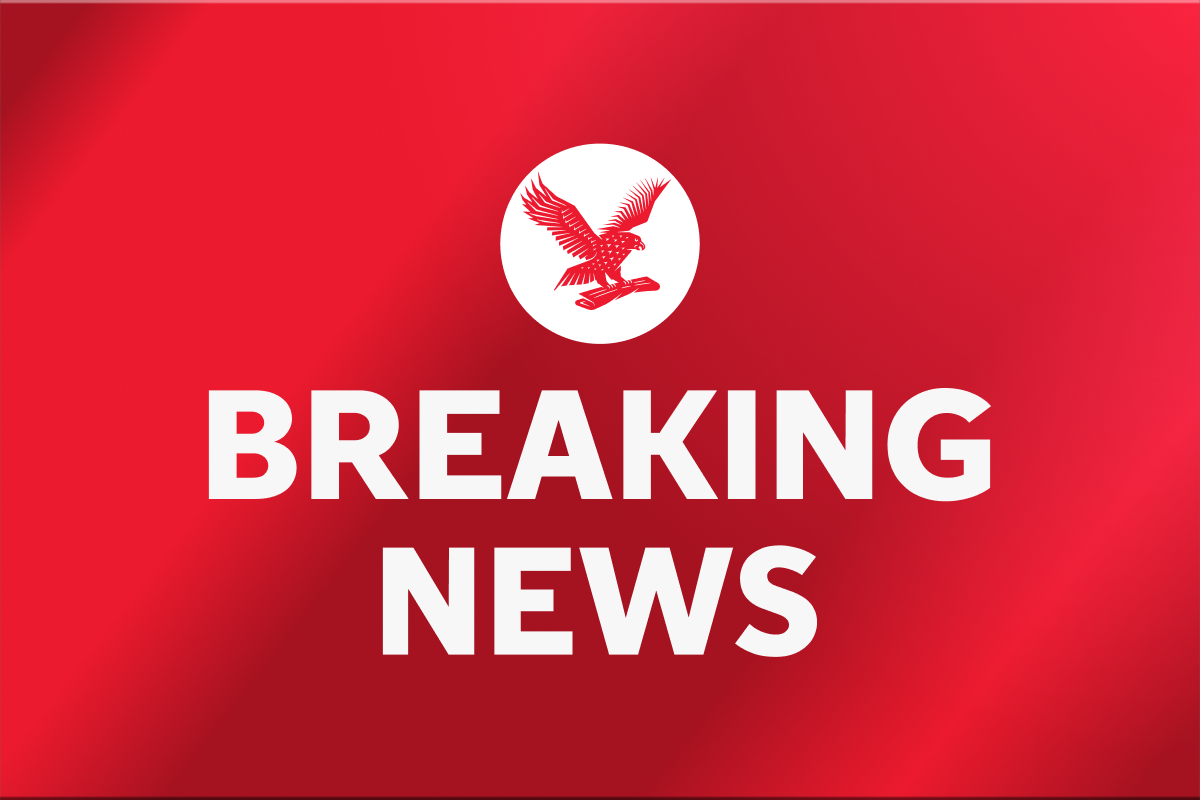North Korean leader Kim Jong Un has been shown grieving over the coffins of his soldiers killed while fighting for Russia in Ukraine, in an unusually public display acknowledging the regime’s combat losses abroad.
Images aired by state broadcaster Korean Central Television over the weekend showed Mr Kim placing both hands on coffins draped in the North Korean flag, during what appeared to be a repatriation ceremony.
The scene formed part of a state-orchestrated gala in Pyongyang to mark the one-year anniversary of a military pact with Russia.
Photographs from the event, held at East Pyongyang Grand Theatre and attended by Russian culture minister Olga Lyubimova, captured Mr Kim visibly emotional, standing alongside his teenage daughter Kim Ju Ae and senior party officials, including his influential sister Kim Yo Jong.
The ceremony featured a backdrop of stirring music and wartime imagery, including what appeared to be a blood-stained notebook from a North Korean soldier retrieved from the battlefield in Russia’s Kursk region, reported the Guardian.
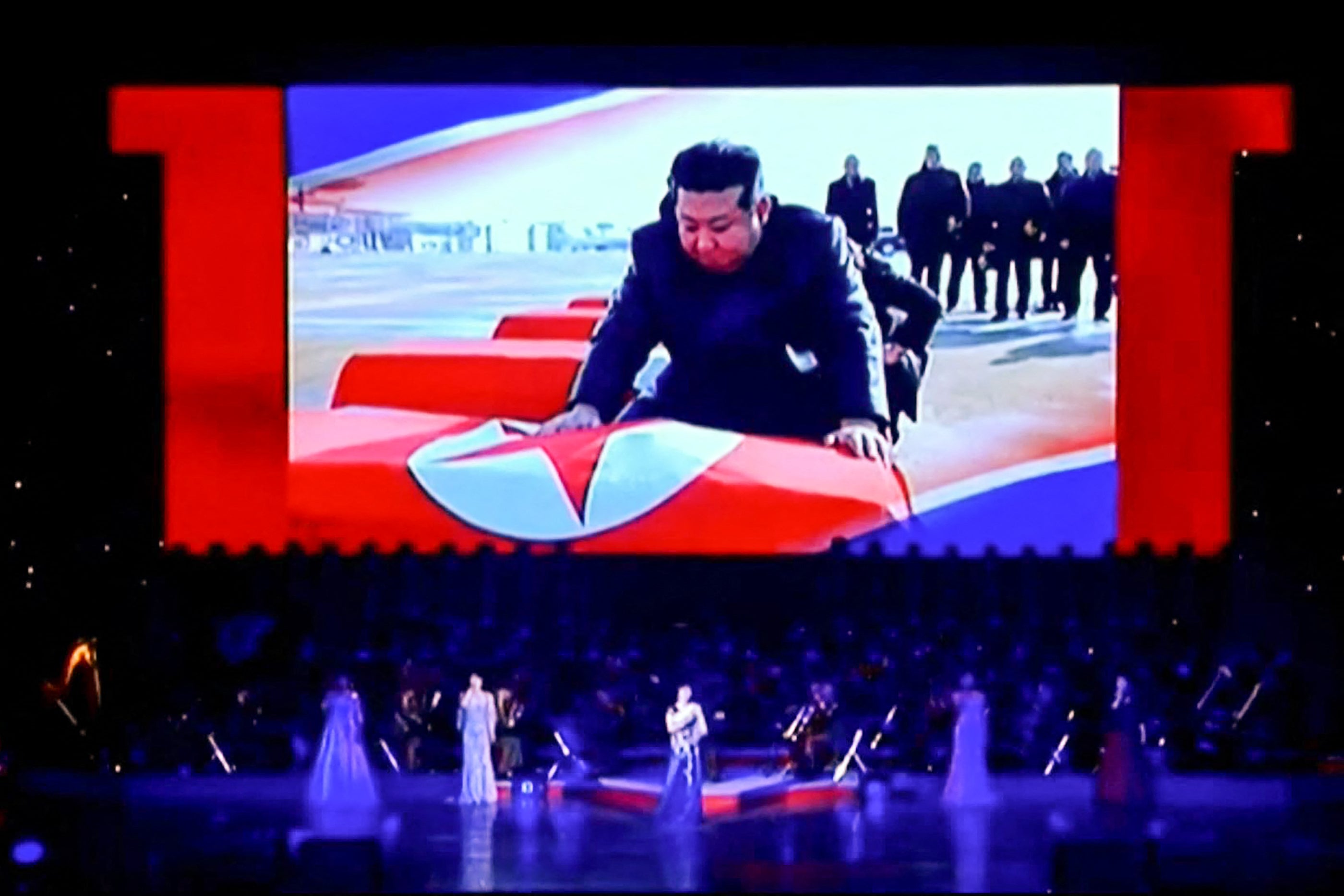
According to Yonhap news agency, phrases inside the notebook, reportedly read, “The decisive moment has finally come” and “Let us bravely fight this sacred battle with the boundless love and trust bestowed upon us by our beloved Supreme Commander”, in an apparent reference to Mr Kim.
Though state media did not disclose when the remains were returned, officials present were dressed in heavy winter clothing, suggesting the repatriation occurred months earlier.
The North only confirmed the deployment of its soldiers to Russia’s war effort in April, after months of denial. Since then, Pyongyang and Moscow have begun openly commemorating the troops’ “heroic” role in reclaiming the Kursk region, a strategically significant western Russian territory once contested by Ukrainian forces.
Footage from the tribute also showed Mr Kim approving battlefield plans for Kursk on three dates last year – 22 October, 12 December, and 22 December – and issuing offensive orders to special operations units.
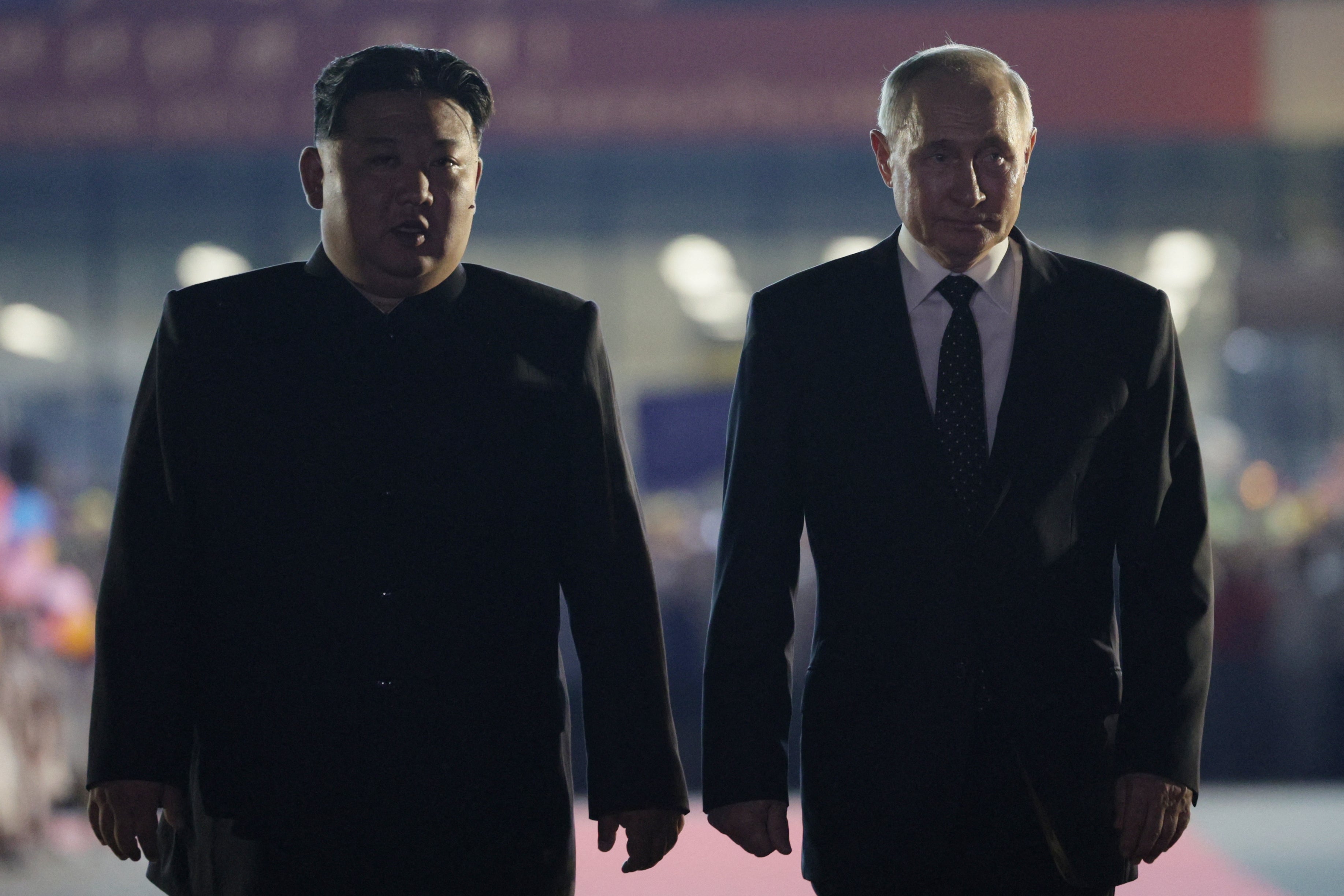
A photograph of the document was displayed, portraying him as a central commander of military operations abroad.
According to South Korea’s National Intelligence Service, North Korea has deployed an estimated 15,000 troops to Russia since late 2024, with approximately 600 killed and 4,700 wounded.
The latest footage showed only a handful of coffins, prompting speculation that the ceremony was more symbolic than representative of the true scale of losses.
Analysts suggest the performance was designed to bolster public support and frame the deployment as part of a victorious joint mission.
“North Korea probably wanted to frame the fallen soldiers not just as sacrifices but as part of a victory narrative,” Hong Min, a senior researcher at the Korea Institute for National Unification, told Yonhap.
“The footage appears to have been released after the two countries acknowledged the troop deployment.”
Russian and North Korean spectators were seen weeping during the event, as KCNA news agency praised the show for affirming the “ties of friendship and the genuine internationalist obligation between the peoples and armies of the two countries that were forged at the cost of blood”.
North Korea has also reportedly supplied Russia with artillery shells, ballistic missiles, and other weapons, in exchange for satellite and missile technology as well as economic assistance.
The military agreement signed between Mr Kim and Russian president Vladimir Putin in June 2024 includes a mutual defence clause.
Despite North Korean media showcasing Mr Kim’s apparent grief and leadership, only a small fraction of fallen soldiers were acknowledged publicly.
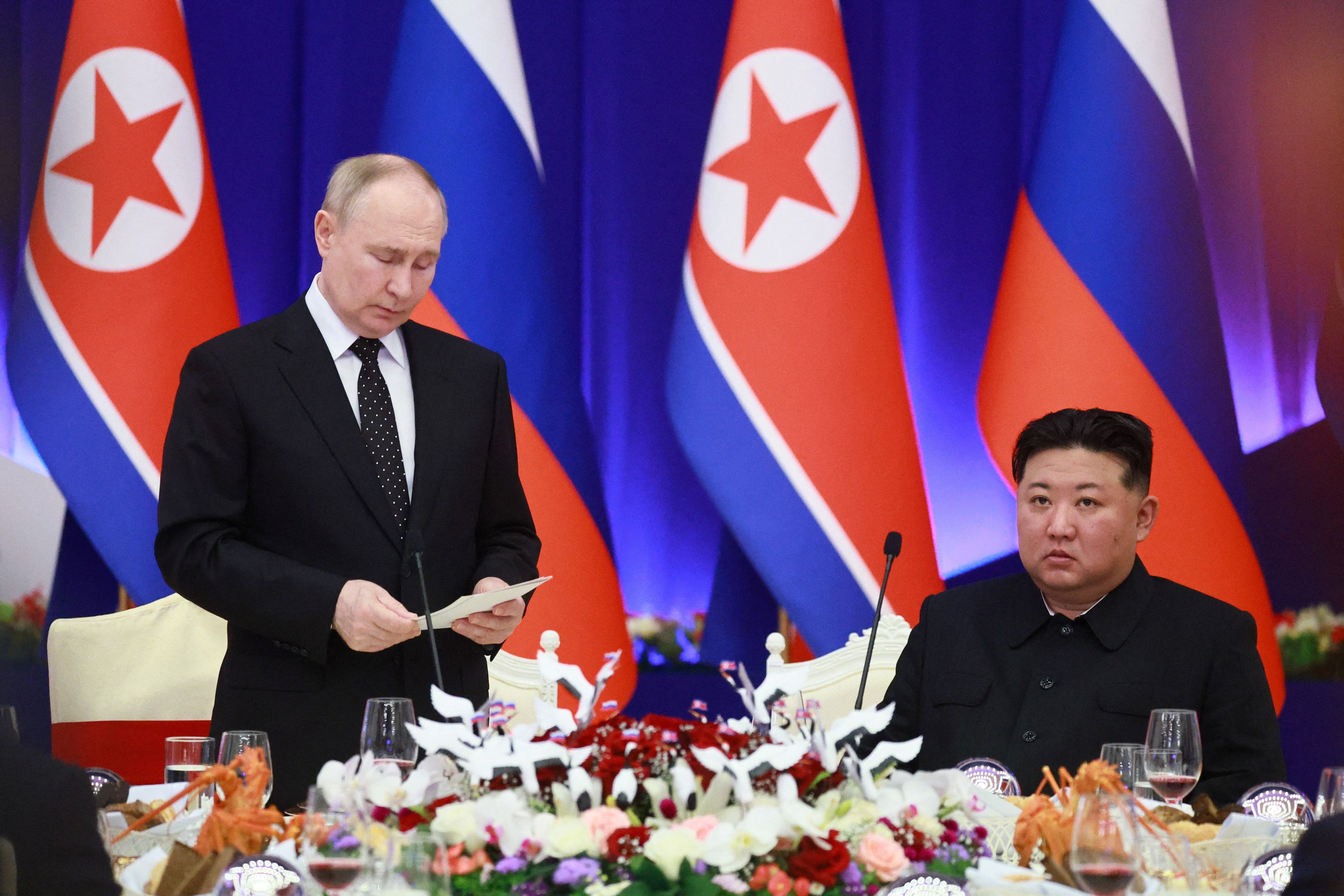
The South Korean defence ministry said on Tuesday it had not observed signs of imminent new deployments but acknowledged reports that additional troops – engineers and construction personnel – may be sent as early as July or August.
Mr Putin has twice visited the Kursk region since regaining control, and North Korean troops are believed to have played a significant role in reversing Ukrainian advances there.
While North Korean troops suffered heavy losses initially, they have earned respect in the battlefield overtime, Rob Lee, a senior research fellow at the Foreign Policy Research Institute, told the Telegraph.
Ukrainian officials Mr Lee spoke to “had a pretty high opinion of the North Korean soldiers. They thought they’re very physically fit, very tough, pretty competent”.
“Tactically, they were employed, I think, poorly by the Russians,” he said. “But at the squad level, they have pretty good tactics, good marksmanship, and they don’t surrender.”
Additional reporting by agencies

 6 hours ago
5
6 hours ago
5

